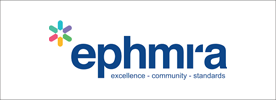
As healthcare challenges and solutions increasingly cross borders, understanding diverse perspectives from around the world has become essential for effective decision-making. International quantitative research plays an important part in delivering high-quality, representative data needed for these insights. At M3 Global Research, we focus on ensuring data quality, overcoming the complexities of cross-country research, and sharing the best practices to help organisations make informed, strategic decisions that improve health outcomes.
The Importance of Global Insights in Healthcare
Healthcare is evolving rapidly, driven by advancements in technology, shifting demographics, and the growing interconnection of markets. For organisations to create impactful treatments, policies, and business strategies, understanding the perspectives of healthcare professionals and patients across regions is increasingly vital. Quantitative research offers a data-driven approach, providing the depth of insights needed to navigate this global landscape. However, the value of this research depends on being able to collect representative, high-quality data from diverse markets.
The M3 Global Research Approach: Ensuring Data Quality and Integrity
M3 Global Research stands at the forefront of international quantitative research, leveraging the world’s largest ISO-certified proprietary panel of triple-verified healthcare professionals. This extensive panel, combined with M3’s industry-leading methodologies, ensures that clients receive the most accurate and representative data possible.
Key Elements of M3’s Approach:
- Triple-verified Panel: M3’s proprietary panel is not only the largest but also the most rigorously verified, ensuring that only qualified and genuine healthcare professionals participate in studies. This triple-verification process minimises the risk of data contamination and enhances the reliability of insights.
- Dynamic profiling: To ensure that respondents are appropriately matched to studies, M3 employs dynamic profiling, combining basic profile information with rich behavioural and self-declared data. This approach minimises screen-outs and increases response rates, leading to more efficient and effective research.
- Fraud prevention: M3 is committed to maintaining the integrity of its data through comprehensive fraud prevention measures. By combining technologies like Imperium’s RelevantID and Google’s reCAPTCHA with proprietary innovations, M3 effectively mitigates the risk of fraudulent respondents and duplicate entries.
Challenges in International Quantitative Research
Conducting quantitative research across multiple countries presents unique challenges that can affect the quality and reliability of data. Some of the most common challenges include:
- Cultural differences: Variations in cultural norms, behaviours, and attitudes can influence how respondents answer survey questions. Understanding these nuances is crucial for designing surveys that yield accurate and meaningful data.
- Regulatory environments: Each country has its own set of regulations governing healthcare research, data privacy, and participant incentives. Navigating these regulations requires a deep understanding of local laws and compliance requirements.
- Respondent engagement: Engaging healthcare professionals across different regions can be challenging due to varying levels of interest and accessibility. Ensuring high response rates and participation quality requires personalised approaches that resonate with each target audience.
Strategies for Overcoming Challenges
- Localised survey design: Tailoring surveys to reflect cultural and linguistic differences ensures that questions are understood and interpreted consistently across regions.
- Regulatory expertise: Partnering with a research provider that has extensive knowledge of global regulatory environments, like M3 Global Research, is critical to ensuring compliance and avoiding potential legal pitfalls.
- Personalised invitations: Leveraging dynamic profiling and personalised invitations increase respondent engagement by ensuring that participants are matched to studies that align with their interests and expertise.
Best Practices for Conducting International Quantitative Research
Success in international quantitative research depends on careful planning, execution, and adherence to best practices. Here are key strategies to consider:
- Comprehensive planning: Begin with a clear understanding of your research objectives and the specific insights you need from different regions. This will guide the survey design, respondent selection, and data analysis processes.
- Robust data quality measures: Implementing strict data quality measures, including fraud prevention technologies and respondent verification processes, is essential to ensure that the data collected is reliable and actionable.
- Expert project management: A dedicated project management team with deep industry knowledge and experience in global research navigate the complexities of international studies, keeping projects on track, on time, and within budget.
- Flexible programming and hosting: Ensure that your research provider offers full coverage programming and data processing services. This flexibility allows for seamless adjustments to survey design, respondent targeting, and data reporting as the project evolves.
Future Trends in International Healthcare Research
As the field of healthcare research continues to evolve, new trends are emerging that will shape the future of international quantitative studies. These include:
- AI and machine learning: The integration of AI and machine learning into data analysis is revolutionising how insights are derived from large datasets, allowing for more accurate and predictive modelling.
- Patient-centric research: There is a growing emphasis on incorporating patient perspectives into research, recognising the importance of understanding patient behaviours, needs, and experiences in developing effective treatments and interventions.
- Increased focus on diversity and inclusion: As global healthcare becomes more diverse, there is an increasing focus on ensuring that research panels are representative of all populations, including underrepresented groups.
Conclusion: Maximising the Value of International Quantitative Research
International quantitative research is a powerful tool for healthcare organisations seeking to make informed, strategic decisions in an increasingly globalised market. By partnering with experienced research firms like M3 Global Research, companies can navigate the complexities of international studies, ensuring that they receive high-quality, reliable data that drives impactful outcomes.
As the healthcare landscape continues to evolve, the ability to understand and leverage global perspectives will be more important than ever. By following the best practices outlined in this white paper, healthcare organisations can maximise the value of their research and position themselves for success in the global market.
Are you interested in learning more?





